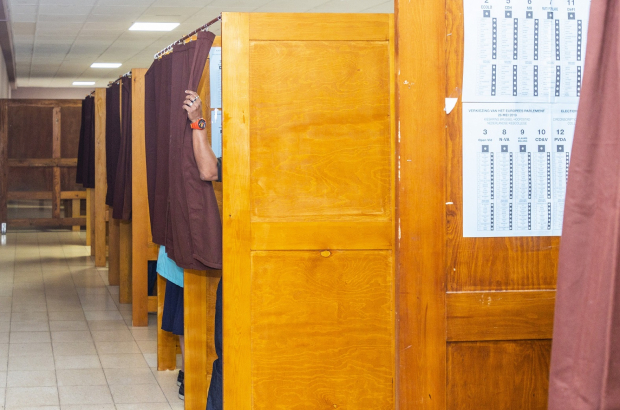- Daily & Weekly newsletters
- Buy & download The Bulletin
- Comment on our articles
Lack of trust in politics led to far-right success, study shows
Ideology and negative perceptions of democracy and politics were decisive factors in voting behaviour at the elections in May, analysis by researchers in Brussels and Leuven has shown. The elections were notable for the success of radical left- and right-wing parties and for losses for traditional political parties. Researchers from the Dutch- and French-speaking Free University of Brussels (VUB and ULB) and KU Leuven have analysed the causes of this voter behaviour.
Professors Kris Deschouwer (VUB), Sofie Marien, Ine Goovaerts, Anna Kern and Lisa van Dijk (KU Leuven) and Emilie van Haute (ULB) found that trust in politics and politicians has fallen since the elections in 2009 and 2014: by about one point on a 0-10 trust scale. Trust in institutions such as the federal parliament has also decreased.
That lack of trust influenced choices at the polls. The research shows that voters with the lowest faith in politics tended to vote for the far-right Vlaams Belang in Flanders and the far-left PTB in Wallonia. In 2014, N-VA was the most popular party among Flemish voters describing themselves as having low levels of trust in politics. Those with high levels of trust in politics were more likely to vote for traditional parties such as CD&V, Groen and N-VA. As well as low trust in politics, those who voted for radical parties share a number of other characteristics: they are less satisfied with the policies of their regional government and experience negative emotions related to politics.
This doesn’t account entirely for the success of the more radical parties, however. In Flanders, the most important determining factors in voting for Vlaams Belang were strong identification with the right side of the left-right political spectrum, low satisfaction with democracy and low levels of formal education or training. The findings applied equally to both male and female voters.
“Both in Flanders and in Wallonia, the more established parties attracted fewer voters with low political confidence,” the researchers say in their research note. “The voters of Vlaams Belang, PTB-PvdA and those with blank or spoiled ballot papers closely resemble each other, with a high proportion of people with low political confidence. However, that is not the whole story: Vlaams Belang and PvdA-PTB also attract voters with high political confidence. Vlaams Belang in particular succeeded in increasing its popularity with voters with a higher level of confidence in politics.”
They also questioned voters about the issue that matter most to them. In Flanders, Groen has the most homogeneous electorate: the majority of voters say the climate is their main concern. Vlaams Belang voters all rate migration as their top priority. Migration also comes first among N-VA voters, but they consider the economy and taxes almost as important. With Open VLD and CD&V voters, it is less clear which issues they find most important: social security comes first with CD&V voters, and economy and taxes with Open VLD voters. The environment is also an important issue for voters of both parties.
The analysis was based on two surveys conducted by Kantar TNS at the request of the Excellence of Science consortium RepResent, carried out shortly before and shortly after the elections of 26 May.
Photo: Belga/Hatim Kaghat


















